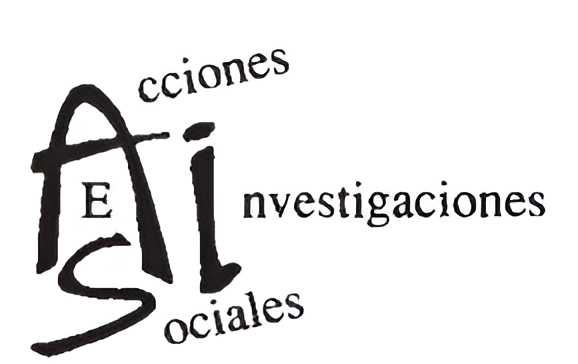Analysis of the roles and functions of the school social worker in Spain: evolution of legislation and types of intervention
DOI:
https://doi.org/10.26754/ojs_ais/ais.2019404194Keywords:
social work, school social work, education, technical teachers for community services, intervention models, legislative evolutionAbstract
Social work in a school environment is still relatively unknown in Spain, whereas in countries like the USA it has already accu- mulated over 100 years of history. Nevertheless, education is known to be one of the fields in which the direct impact of social work is evident at all levels, ranging from the individual to the family. This includes various social groups spawned by primary school, as well as those that emerge at community level. It is a fact that, in accordance with current educational legislation, social work can indeed be found in primary and secondary schools. However, in Spain it is rarely specified in the figure of the school social worker. In this study we review the social work performed in Spanish schools, to shed light on a facet of the profession that is invisible and still denied by a large number of professionals, who still confuse it with the work done by psychologists and school counselors. With this in mind, we look at the legislative development enjoyed by the social worker in the educational sector, in addition to analysing its functions in the fields and intervention models pertaining to social work.
Downloads
References
Abad Rodríguez, D. y Camacho Grande, J. M. (2007). Servicios Sociales y Educación: una relación con futuro. Trabajo Social Hoy, monográfico, 25-33.
Barranco, C. y López, M.D. (2009). El sentido del Trabajo Social en Educación: reflexiones sobre la experiencia profesional en los EOEPS. Zaragoza: XI Congreso Nacional de Trabajo Social.
Barranco, C. (2009). Trabajo Social, calidad de vida y estrategias resilientes. Portularia, IX (2), 133-145.
Barrueco, Á. (1990). Consideraciones históricas sobre la orientación escolar. Revista de educación, 292, 335-350.
Cariceo, O. (2012). Perspectivas para el trabajo social en el sistema educativo. Revista Perspectivas, 23, 189-202.
Casanova, M. (2007). Reto del sistema educativo en la Comunidad de Madrid. Trabajo Social Hoy, número extraordinario 1, 7-23.
Castro, C. y Rodríguez, E. (2016). Intervención social con adolescentes: Necesidades y recursos. Revista Trabajo Social Hoy, 77, 7-23. DOI 10.12960/TSH.2016.0001
Castro, C., y Pérez, J. (2017). El Trabajo Social en el entorno educativo español. Barataria Revista Castellano Manchega de Ciencias Sociales, 22, 215-226.
Cívicos, M. A., González, A., Pérez, A. B. y Hernández, M. (2006). Análisis de funciones del trabajador social en el campo educativo. Acciones e investigaciones sociales, 1, 453-478.
Concha, M. (2012). Rol, perfil y espacio profesional del Trabajo Social en el ámbito educativo. Revista Cuadernos de Trabajo Social, 5, 11-26.
Espinosa, A., Mateo, H. y De Felipe, I. (1990). El trabajo social en Educación. Servicios Sociales y Política Social, 20, 68-75.
Fernández, D. (2007). Aproximación histórica a la trayectoria del Trabajo social en el sistema educativo español. Trabajo Social Hoy, número extraordinario 1, 75-92.
Fernández, D. (2011). El Trabajo Social en el Sistema Educativo.
Madrid: Consejo General de Trabajo Social.
Fernández, D. (2014). El Trabajo Social en la Red de Orientación Educativa. Padres y Maestros, 358, 5-8.
Fernández, T. y Ponce de León, L. (2014). Nociones básicas de Trabajo Social. España: Ediciones Académicas.
Fundación ADSIS (2013). El futuro comienza hoy. Estudio sobre las expectativas y actitudes de estudiantes españoles de la ESO.
Gastañaga, J. L. (2004). Trabajo social, familia y escuela. Cuadernos de Trabajo Social, 17, 255-271. Obtenido de: https://www. fundacionadsis.org/sites/default/files/descargas/publicaciones/ adsisfundacion-estudio-2013-elfuturocomienzahoy.pdf
González, M. N. (2016). El profesor técnico de servicios a la comunidad en equipos de orientación educativa y psicopedagógica de Castilla y León: diagnóstico y perspectivas. (Tesis doctoral). Universidad Complutense de Madrid, España. Obtenido de: https://eprints.ucm.es/40421/1/T38097.pdf
Jiménez, C. (1990). Trabajo Social en el sistema educativo. Revista Documentación Social, 79, 145-160.
Morales, M. L. (2012). El estructuralismo constructivista y las prácticas en Trabajo Social. Prospectiva: Revista de Trabajo Social e Intervención Social, 17, 333-351.
National Association of Social Workers, NASW (2012). NASW standards for school social work services. Washington: NASW Distribution Center.
OECD. (2016). PISA 2015 results (Volume I). Excellence and equity in education. Paris: OECD Publishing.
Palma-García, M. O. y Hombrados-Mendieta, M. I. (2013). Trabajo Social y resiliencia: revisión de elementos convergentes. Portularia: Revista de Trabajo Social, 13 (2), 89-98.
Puyol, B. y Hernández, M. (2009). Trabajo Social en Educación.
Revista Qurriculum, 22, 97-117.
Roselló Nadal, E. (1998). Reflexiones sobre la intervención del trabajador social en el contexto educativo. Alternativas. Cuadernos de Trabajo Social, 6, 233-258.
Torra, M. (2009). El Trabajo Social en la enseñanza. Revista de Servicios Sociales y Política Social, 86, 125-128.
Published
How to Cite
Issue
Section
License
Copyright (c) 2020 Diana Valero Errazu, Ana C. Romea, Aranzazu Palain Pescador

This work is licensed under a Creative Commons Attribution-NonCommercial 4.0 International License.
Authors publishing in this journal agree to the following terms:
- Authors retain copyright and grant the journal the right to be the first publication of the work as well as licensed under a Creative Commons Attribution-NonCommercial 4.0 license that allows others to share the work with an acknowledgement of authorship and initial publication in this journal.
- Authors may separately establish additional agreements for the non-exclusive distribution of the version of the work published in the journal (e.g., placing it in an institutional repository or publishing it in a book), with an acknowledgement of its initial publication in this journal.
- Authors are allowed and encouraged to disseminate their papers electronically (e.g., in institutional repositories or on their own website) before and during the submission process, as it can lead to productive exchanges, as well as earlier and higher citation of published papers (see The Effect of Open Access).









